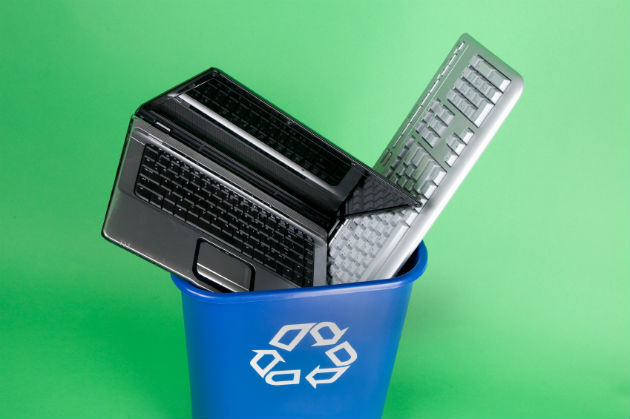Around the world, thousands of men, women and children
risk their lives on a daily basis so that consumers in other countries can purchase items made with precious metals like gold, silver and copper. While some of these mined metals eventually end up as pieces of jewelry or other valuables, more often than not they are used to create common household electronics.
Earlier this year, the United Nations released a report on the problems surrounding the recycling of electronic scrap, known as
e-waste. The millions of tons of old computers and phones discarded on the scrap heaps of the world every day contain more gold and silver than the average mine.
Instead of wasting energy and resources to extract these metals from the ground, often polluting the planet in the process, many experts believe that countries should focus on developing better and safer electronics recycling programs so that these precious metals can be reclaimed from discarded items and reused.
The UN’s
Solving the E-Waste Problem Initiative (StEP) was founded in 2004, and is an international effort to optimize the life cycle of electric and electronic equipment and increase its reuse. The executive secretary of StEP, Rüdiger Kühr, has said that creating an industry that supports “
urban mining” could both reduce costs and preserve the earth’s stocks of raw materials.
For example: in traditional gold-mining operations, a company would need to move an entire ton of ore to extract 1 gram of gold. But, through the far simpler and cheaper process of recycling, it is possible to extract the same amount of gold from 41 discarded mobile phones.
Although developed countries like the U.S. and China account for the majority of the electronics purchased, they rely on underdeveloped nations to deal with their toxic electronic waste. Many
children in Africa have been poisoned because of toxic chemicals leaching from discarded computers and mobile phones, often exported illegally.
Experts predict the amount of electronic rubbish in China and South Africa will quadruple compared to figures from 2007. In order to deal with this problem, more electronics manufacturers need to accept responsibility for their outdated products. The U.S. and other countries should follow the example of the European Union, where manufacturers of electronic equipment are duty bound to take back their used wares and dispose of them properly.


